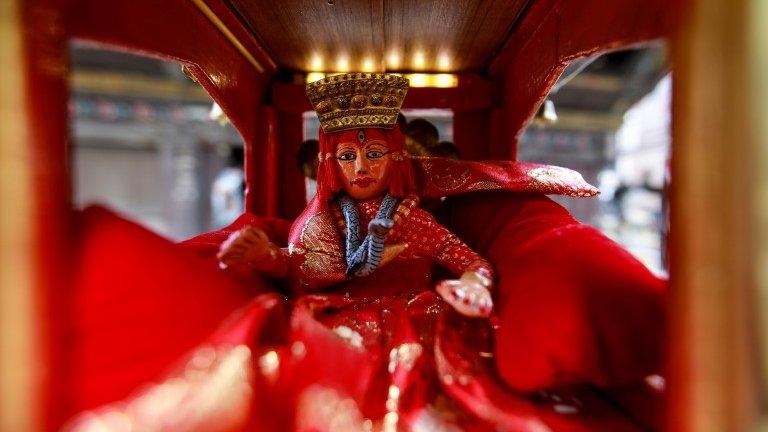Nepal protests: Thousands march against move to dissolve parliament
- Published
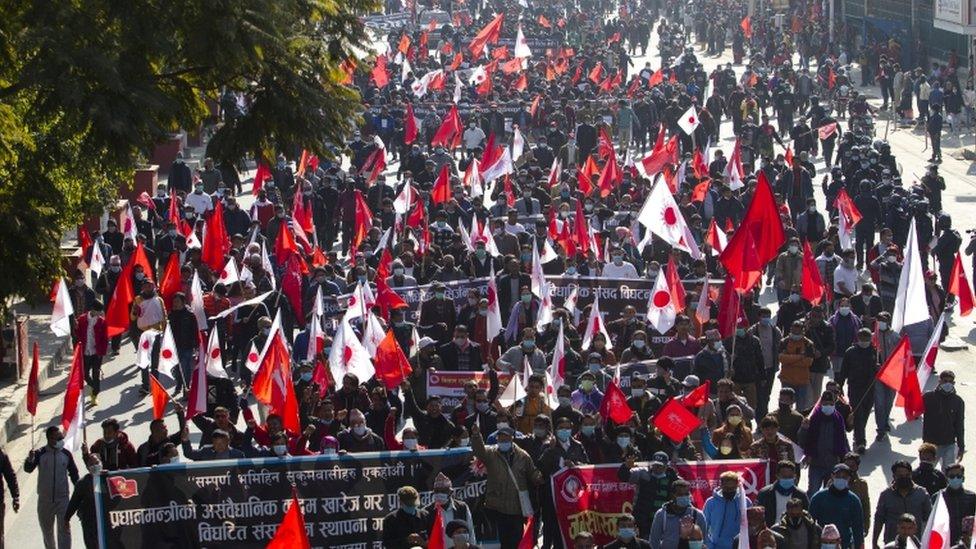
Around 10,000 protesters are estimated to have taken part in a march in Nepal's capital, Kathmandu
Thousands of people in Nepal have defied coronavirus restrictions to protest against an attempt by the prime minister to dissolve parliament.
The protesters argue that the move is unconstitutional, and Nepal's Supreme Court is considering petitions against it.
Prime Minister Khadga Prasad Sharma Oli says new elections are essential to end infighting within his governing party.
China has noted the instability in its neighbour with concern.
Mr Oli was appointed prime minister in February 2018 after his Nepal Communist Party (NCP) won legislative elections.
He formed the NCP with the support of former Maoist rebels, becoming the first prime minister to be elected under the newly adopted constitution of Nepal in 2015.
But in recent months internal squabbling and a lack of co-operation from the former Maoist wing of his party have paralysed decision-making, forcing him to seek a new popular mandate.
The dissolution of parliament at the request of Mr Oli was announced on 20 December, with elections scheduled for 30 April and 10 May next year.
The move has a created a crisis of government in the Himalayan country, which has been racked by political instability since street protests restored multi-party democracy in 1990.
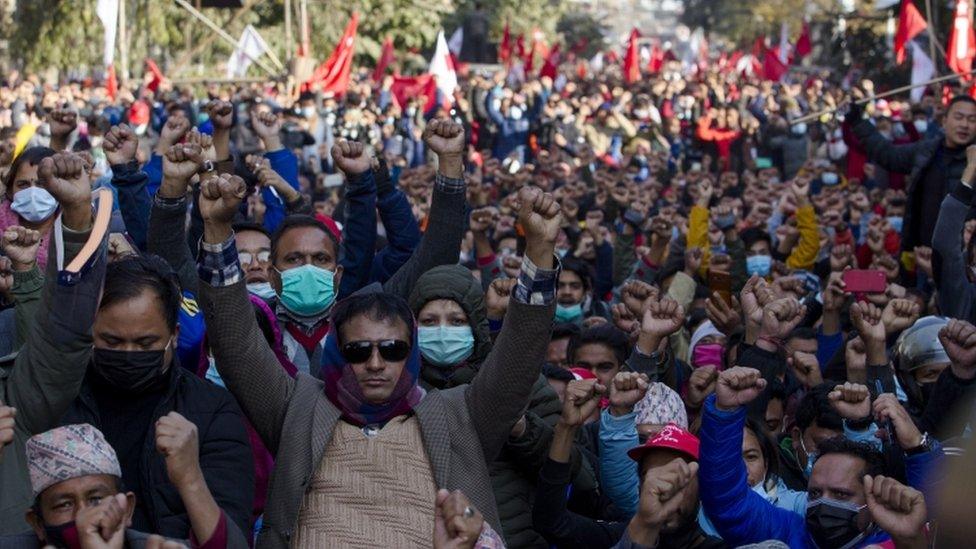
The prime minister said new elections are necessary to end political in-fighting
Traffic was severely disrupted in Kathmandu as opponents of Mr Oli held rallies in different parts of the capital on Tuesday.
Police said at least 10,000 people were on the streets to participate in one of the marches, one of the most intense protests the country has seen since Mr Oli dissolved parliament.
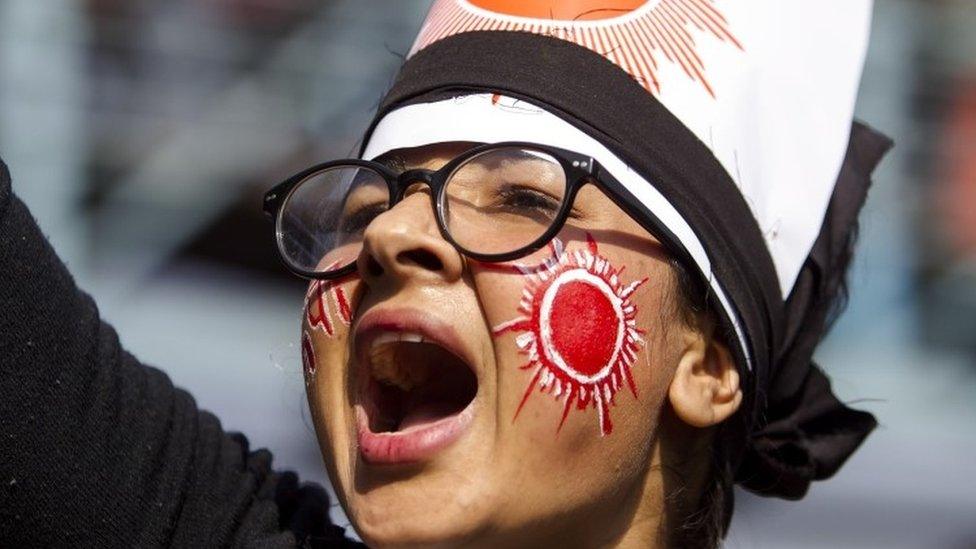
Protesters argue that the prime minister's move to dissolve parliament on 20 December was unconstitutional
"The prime minister has no authority to dissolve the parliament under the constitution," student Rajesh, 19, told Reuters news agency at the protest. "Therefore, he should reverse his decision immediately."
The ongoing political turmoil has triggered concerns in Nepal's northern neighbour China, which has sent a four-member delegation to hold talks with the rival factions of the NCP to avoid a split.
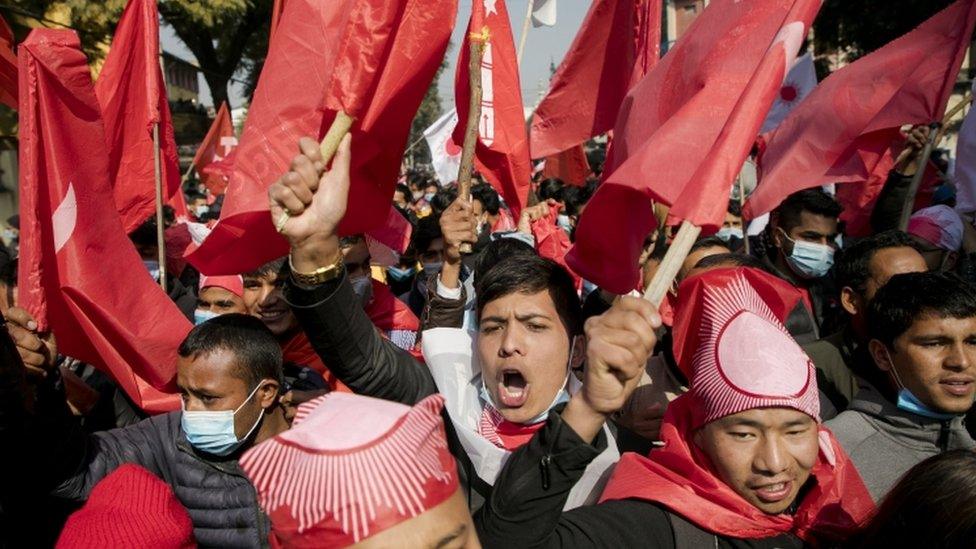
China has called on Nepal's political leaders to resolve the crisis amicably
At a news conference in Beijing, Chinese foreign ministry spokesman Zhao Lijian urged all sides to find a peaceful way out of the dispute.
China has pledged billions of dollars in various infrastructure projects in Nepal as part of its infrastructure drive, the Belt and Road Initiative.

You may also be interested in:
Nepal students reunited with parents after 12 years away
- Published13 June 2020
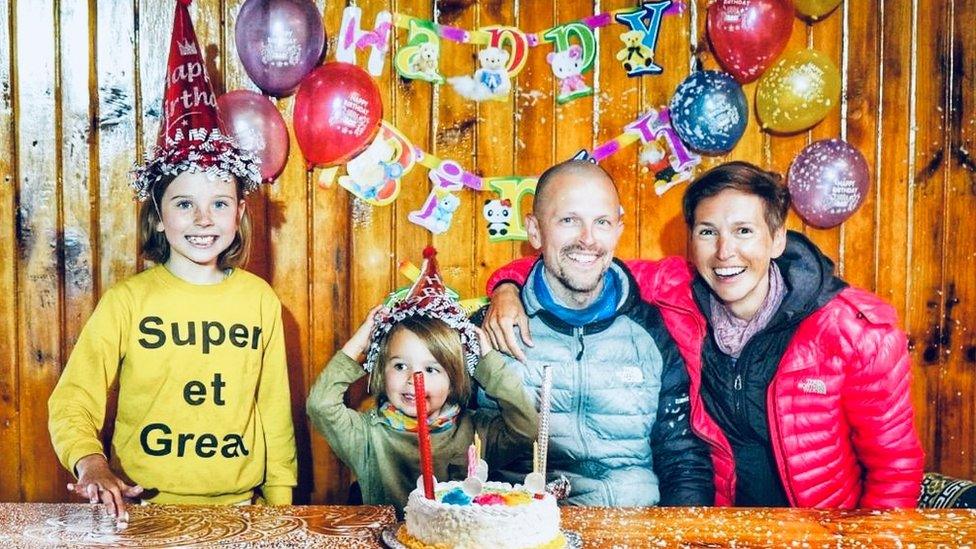
- Published2 October 2020
